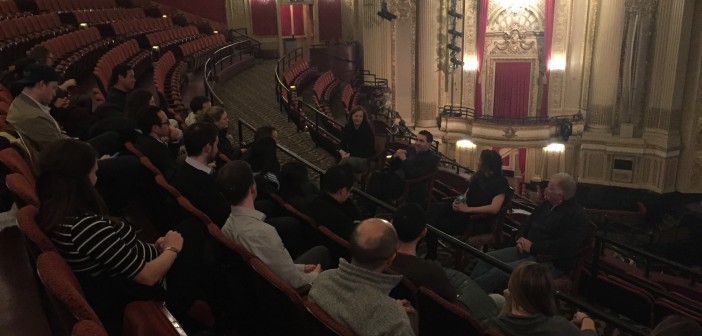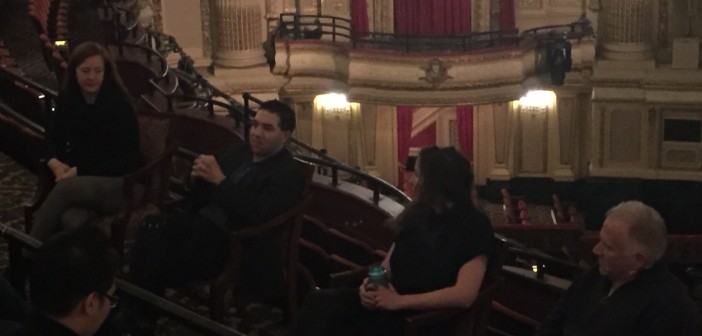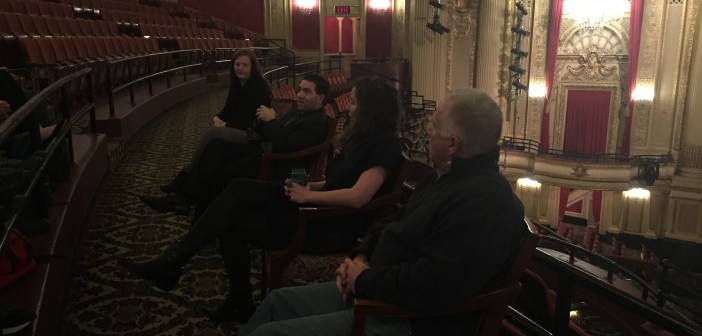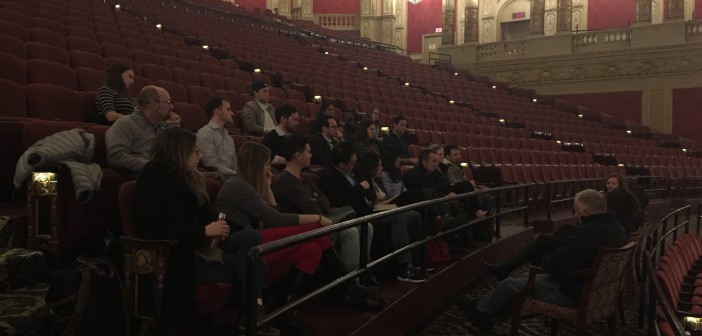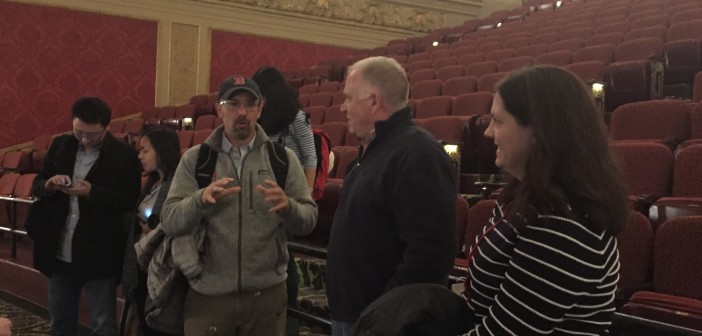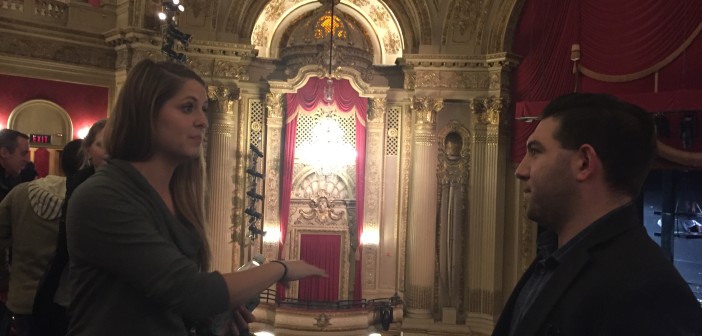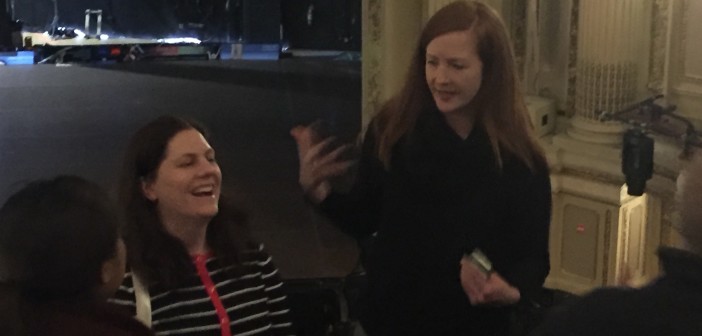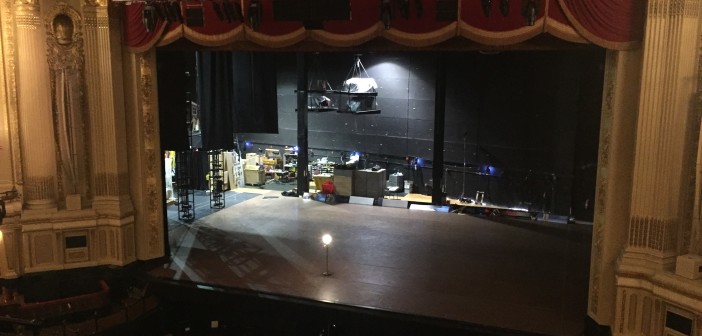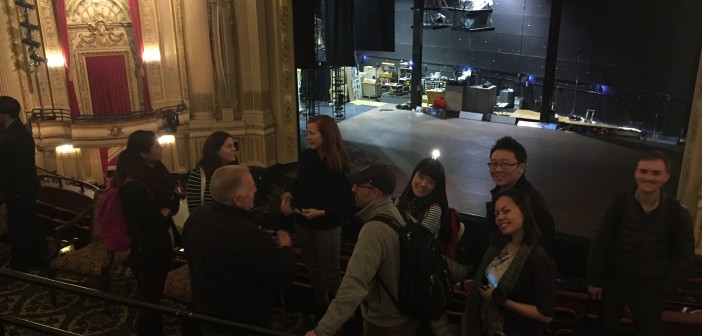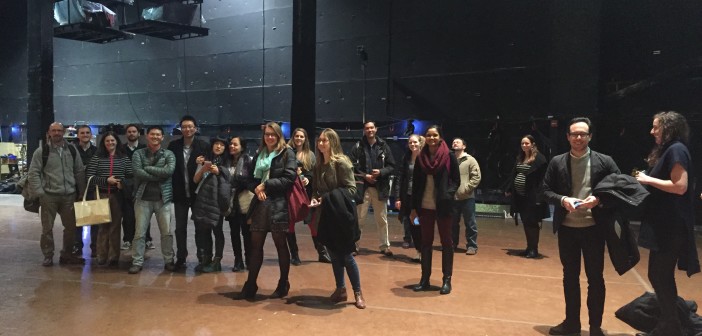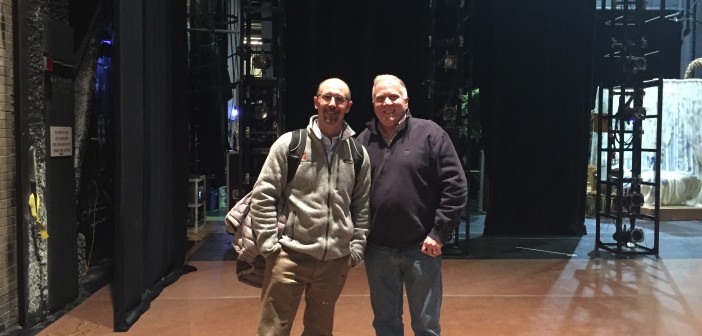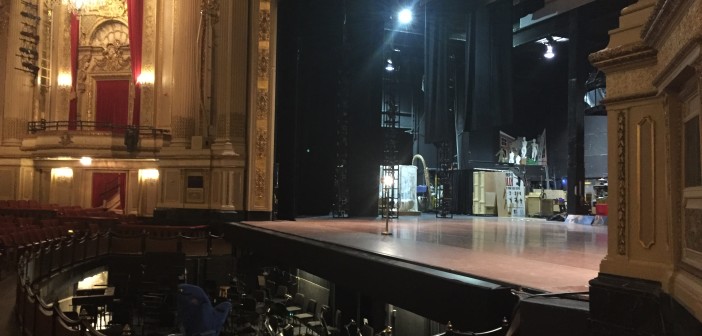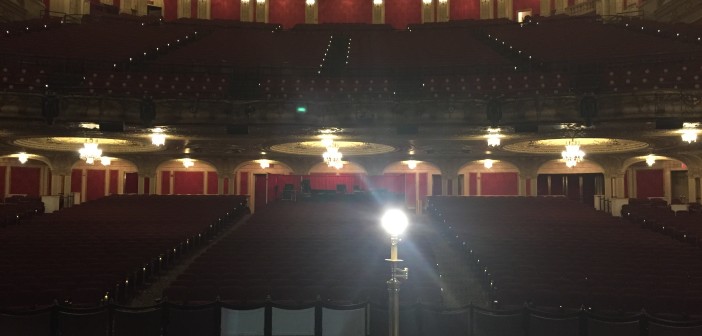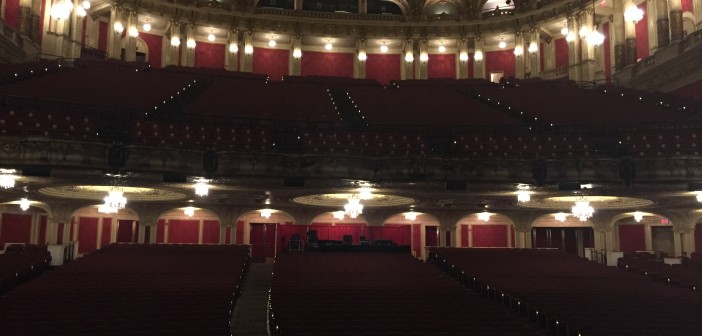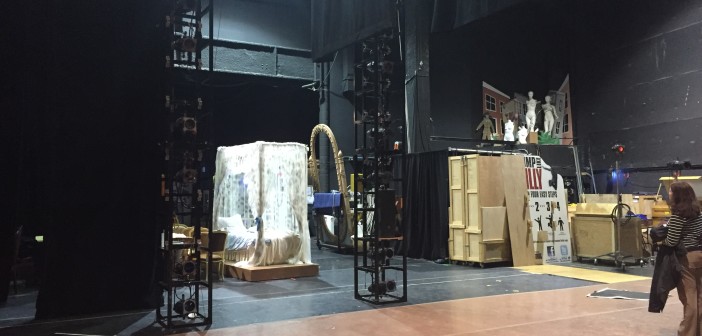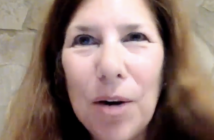Field Trip: Entrepreneurship & the Business of Theatre
A huge thanks to our hosts at the Boston Opera House, for allowing me to teach my BU Questrom School of Business MBA Entrepreneurship class at their venue. We had a case discussion on the success of the show Mamma Mia! and whether the performing arts should be treated / analyzed in the same fashion as other for-profit or not-for-profit businesses. Then, we had a 4-way panel discussion with executives from the Opera House, Boston Ballet and Broadway in Boston.
All 4 executives come from fascinating, yet diverse, backgrounds and expressed completely different perspectives on how they define professional success, what keeps them up each night about their jobs, and how they interpret changes in ticket purchasing, show management, social media and technology. None ever has a “typical” workday, and they love what they each do. Great to see the passion.
History on the Opera House is available on this link, but here are some snippets below, too.
The Boston Opera House (originally known as the B. F. Keith Memorial Theatre) is one of the finest examples of the vaudeville circuit palace at the pinnacle of its development. Designed in a combination of French and Italian styles by Thomas White Lamb, one of the foremost theatre architects of his day, it was erected under the close personal supervision of Edward Franklin Albee (1857-1930 and great-grandfather of the playwright of the same name) to memorialize his late partner, Benjamin Franklin Keith (1846-1914). Because it was constructed as a memorial and tribute to vaudeville’s greatest impresario, it was built with a degree of luxury in its appointments that is almost unrivalled.
The building permit was issued on December 3, 1925, but demolition of B. F. Keith’s Boston Theatre to clear the building site delayed construction for nearly a year. Construction was well-advanced when the cornerstone was laid on August 25, 1927, and the inaugural program took place on October 29, 1928. The opening was attended by many theatrical luminaries, among them George M. Cohan, Lew Fields, Joe Weber, Fred Stone, Maggie Cline, Al Jolson, Julia Arthur Cheney, May Irwin, Raymond Hitchcock, James McIntyre, Tom Heath, Will Cressey and Eddie Leonard. The Commonwealth of Massachusetts was represented by Governor Alvan T. Fuller, and Mayor Malcolm E. Nichols represented the City of Boston. Former Mayor James Michael Curley was also a guest of honor. The Radio-Keith-Orpheum organization which by that time owned the theatre was represented by the host of that great occasion, Edward F. Albee and by R. K. O. Board Chairman Joseph P. Kennedy.

